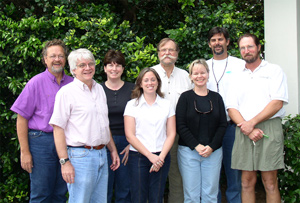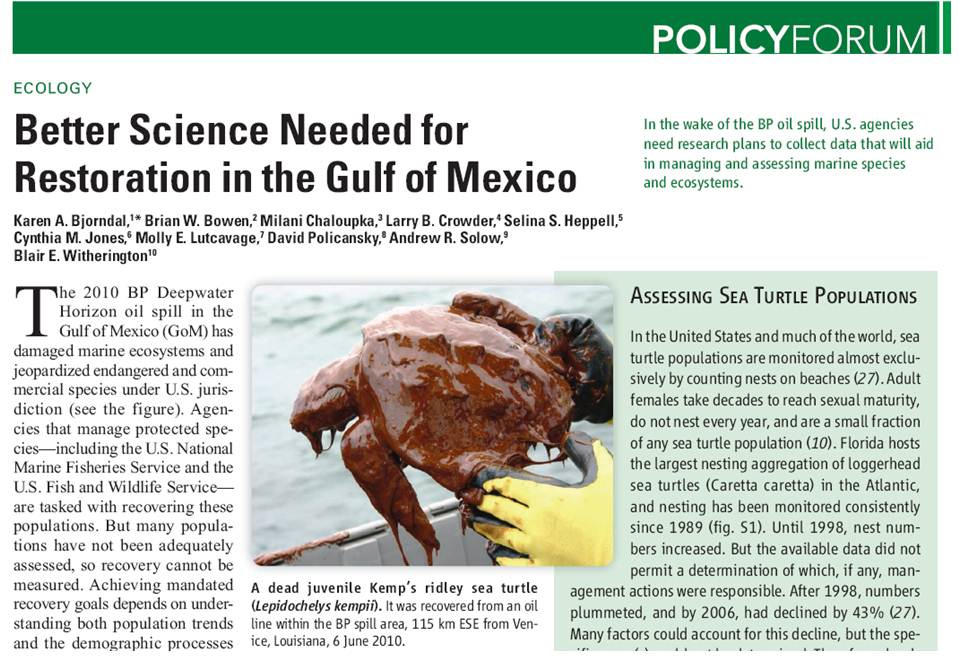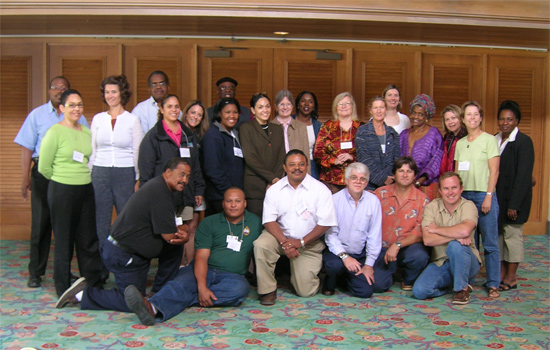
The results of sea turtle research must be communicated to other biologists and managers and translated into policy to support conservation planning. ACCSTR faculty are frequently on policy-setting committees at national and international levels, so we can ensure that our research results are incorporated into policy and management planning in a timely manner.
These committees include those of the National Research Council of the U.S. National Academy of Sciences, Sea Turtle Recovery Committees of the National Marine Fisheries Service and the US Fish and Wildlife Service, the IUCN Marine Turtle Specialist Group, and the Bahamas National Trust.
Papers
Two important papers are:
- Bjorndal, K.A. et al. 2011. From crisis to opportunity: Better science needed for restoration in the Gulf of Mexico. Science 331:537-538.
- Bolten, A.B. et al. 2011 . Quantifying multiple threats to endangered species: an example from loggerhead sea turtles. Frontiers in Ecology and the Environment 9:295–301.

Bahamas Conservation Strategy

One example of our role in informing management and policy is the very successful Bahamas Conservation Strategy.
We developed a Conservation Strategy for Sea Turtles in The Bahamas and an implementation plan for the Strategy during a 3-day workshop that we convened in January 2006 in Nassau, Bahamas in collaboration with The Bahamas Ministry of Marine Resources, The Bahamas National Trust, The Nature Conservancy Bahamas Program, and College of The Bahamas. Workshop attendees included a range of stakeholders: representatives of the appropriate government agencies, educational institutions, and non-governmental conservation organizations that are active within the Bahamas.
The Conservation Strategy was a critical step leading to a total ban on harvest of sea turtles in The Bahamas established by the government of The Bahamas in September 2009. Up to that time, many turtles were killed each year for food within The Bahamas.